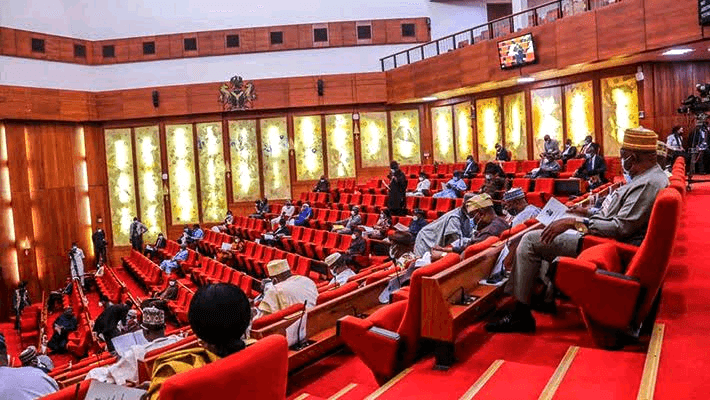From Abba Dukawa, Abuja
The Senate has on Tuesday approved President Bola Tinubu’s plan to borrow over $21 billion (N32,114,439,520,170) from external sources for the fiscal years 2025-2026, enabling the comprehensive execution of the 2025 Appropriation Act.
According to the Senate, the funds are intended to support various national development projects across key sectors, including infrastructure, security, agriculture, and human capital development.
The Chairman Senate Committee on Local and Foreign Debt, Senator Aliyu Wamako, during plenary on Tuesday, presented the long-awaited report, which was first introduced on May 27, 2025.
The delay in its adoption was attributed to parliamentary recesses and challenges in obtaining documentation from the Debt Management Office (DMO).
The approved borrowing package includes “$21.19 billion in direct foreign loans, €4 billion (euros), ¥15 billion (Japanese yen), a $65 million grant, additional domestic borrowing through government bonds totaling approximately ₦757 billion.”
The approval also included capital raising of up to $2 billion through a foreign-currency-denominated instrument in the domestic market.
Chairman of the Senate Committee on Appropriations, Senator Olamilekan Solomon (Ogun West), noted that the approval was largely procedural, as most of the items had already been incorporated into the Medium-Term Expenditure Framework (MTEF) and the 2025 Budget previously passed by the Senate.
“The borrowing is already embedded in the 2025 Appropriation Act. With this approval, we now have all revenue sources, including loans, in place to fully fund the budget,” Adeola said.
Senator Sani Musa (Niger East), clarified that the borrowing plan covers a six-year disbursement period, not just the 2025 fiscal year, and emphasised that Nigeria has not defaulted on any of its existing loan repayments.
“There’s no economy that grows without borrowing. What we are doing is in line with global best practices,” Musa added.
However, Senator Abdul Ningi (Bauchi Central) raised concerns about transparency and accountability in the borrowing plan.
He questioned the absence of a detailed breakdown, showing how much each state or agency will receive and how the loans will be repaid.
“We need to tell our constituents exactly how much is being borrowed in their name, and for what purpose,” Ningi said, citing constitutional provisions related to borrowing oversight.
The borrowing plan includes funding for critical national infrastructure, including: “Railways (notably the Eastern Rail Line from Port Harcourt to Maiduguri), Power plants and digital connectivity, Security operations, Agriculture and housing projects.”
